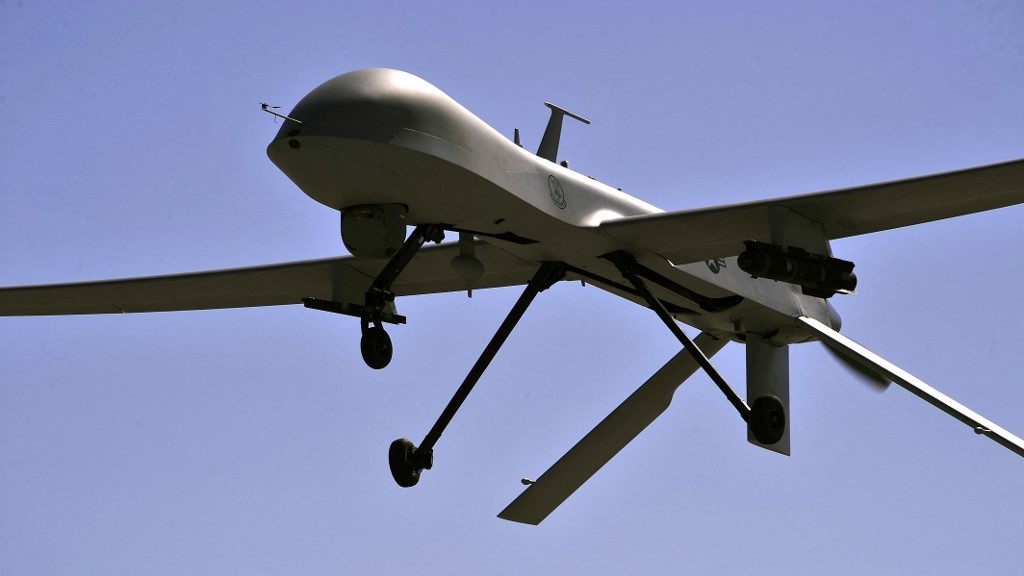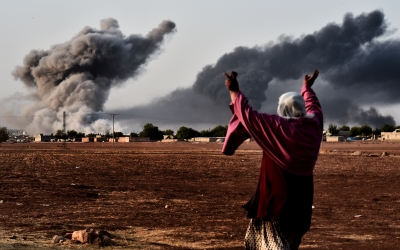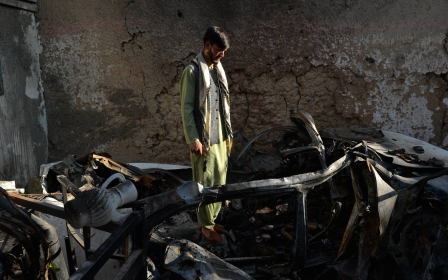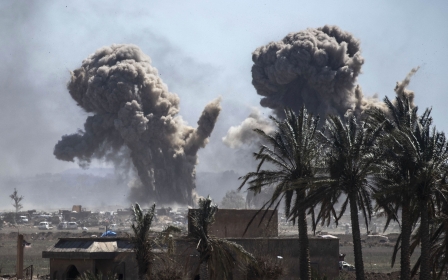US senators question military drone strikes

In the first hearing on the use of lethal drones by the US military in nine years, the Senate Judiciary Committee on Wednesday sought to address long-standing concerns about the number of civilians killed in US air strikes over the past two decades.
Since the previous hearing on the subject - in April 2013 - an estimated 10,000 to 30,000 civilians had been killed as a result of US coalition strikes, according to the monitoring group Airwars, said Senator Dick Durbin, who chairs the committee.
"These are not just numbers. These are real people," Durbin added, as he discussed post-9/11 military actions.
"Through it all, 20 years and four administrations, the Department of Justice legal analysis permitting these lethal strikes has remained shrouded in secrecy," the senator said.
The lawmaker's call was echoed by witnesses in attendance, who stressed the need both for greater transparency and greater accountability from the Pentagon and US military.
New MEE newsletter: Jerusalem Dispatch
Sign up to get the latest insights and analysis on Israel-Palestine, alongside Turkey Unpacked and other MEE newsletters
Radhya al-Mutawakel, the chairperson of Mwatana for Human Rights, a Yemeni-based rights group, said she sent US Central Command (Centcom) 150 pages of documents detailing 12 incidents in which US operations led to the death of 38 civilians, including 13 children.
But in response, Mutawakel added, Centcom said it only acknowledged civilian casualties in two of the reports, and that in both cases compensation for the victims was "not appropriate".
"It is hard to know what will be enough to convince the US military to address the harm it has caused in places like Yemen," she said in her testimony to the committee.
In recent months, the civilian toll of America's "forever wars" in the Middle East has again been in the spotlight after The New York Times released a trove of Pentagon documents showing "deeply flawed intelligence" was used to conduct US-led air strikes, leading to the deaths of thousands of innocent people.
Last month, an independent and Congressionally mandated assessment of the Pentagon's protocols and policies conducted by the Rand Corporation found that the US military was not adequately equipped to address civilian casualties or take steps to prevent them.
"Lessons learned from strikes that caused civilian casualties are still not shared across all of the relevant [Department of Defence] organizations in a way that is meaningfully mitigating future civilian casualties," the report found.
'Effective tool'
Some witnesses argued the use of drones was an effective tool against militant targets and more effective at mitigating civilian deaths.
"Of course, drones can't solve the problem of terrorism on their own. But they're an effective tool when used alongside civilian tools like sanctions, criminal prosecutions, border security, counter-messaging, and so on," said Nathan Sales, the former coordinator for counterterrorism at the State Department.
"When compared to the alternatives, drones do a much better job of allowing the United States to comply with our obligations under the law of armed conflict."
Senator Durbin, however, hit back at this claim, saying: "I don't think there's much precision in the stories that we've heard about the use of lethal drones killing people at a wedding, at a funeral."
A report released earlier this week by Brown University's Costs of War Project also highlighted through statistical analyses that long-term, non-military approaches were much more effective at addressing terrorism.
Shortly after taking office in January, President Joe Biden initiated a review of the use of armed drones and commando raids outside of standard war zones, imposing temporary restrictions. Such drone strikes now require additional high-level reviews to be approved, but have not been banned outright.
Change of culture
Secretary of Defense Lloyd Austin announced last month that the Pentagon would implement a series of measures that would change the culture of the military, in order to prioritise the prevention of civilian harm as a core part of its missions.
Yet a year into his term, lawmakers and advocacy groups are still waiting for the full guidelines to be released, and have been calling for the administration to end the use of lethal force, including drone strikes, in order to follow through on the president's pledge to end America's "forever wars".
'The American people have grown tired of this militarised approach'
- Hina Shamsi, American Civil Liberties Union
During Wednesday's hearing, Hina Shamsi, director of the National Security Project at the American Civil Liberties Union (ACLU), said that Congress must demand the Biden administration testify on its legal and policy justifications for using lethal force outside of war zones, and to deny funding for such use of force.
"The American people have grown tired of this militarised approach," Shamsi said.
"We can continue down the costly old path, or we can invest in alternatives that actually keep us all safer."
Lawmakers from both sides of the aisle have been working on the issue, introducing a bill to curb the executive branch's authority to approve arms sales, deploy troops, or declare national emergencies, as well as a bill to put an end to the 1991 and 2002 authorisations for the use of military force.
Last month, dozens of Senate and House Democrats sent a letter to Biden, urging him to overhaul Washington's policy around the use of lethal force and drone strikes.
When "there is little policy change or accountability for repeated mistakes this grave and this costly", they wrote, it sends a message that civilian deaths are "the inevitable consequence of modern conflict, rather than avoidable and damaging failures of policy".
Still, while Biden has stated his support for some of these efforts, he has continued to tout American airpower, saying that the US would rely on over-the-horizon capabilities - another name for air and drone strikes - for future counterterrorism purposes.
"We have to take into account, as a nation, the costs and consequences of war-based authorities, obviously to civilian lives, but also imperatively to our rule of law and democratic accountability," Shamsi said.
Middle East Eye delivers independent and unrivalled coverage and analysis of the Middle East, North Africa and beyond. To learn more about republishing this content and the associated fees, please fill out this form. More about MEE can be found here.





